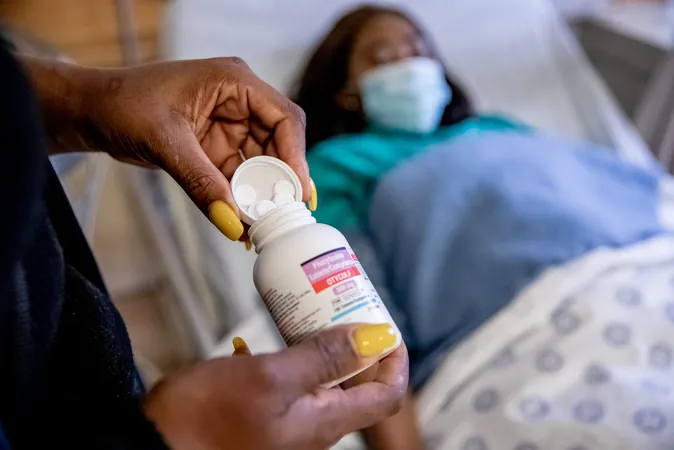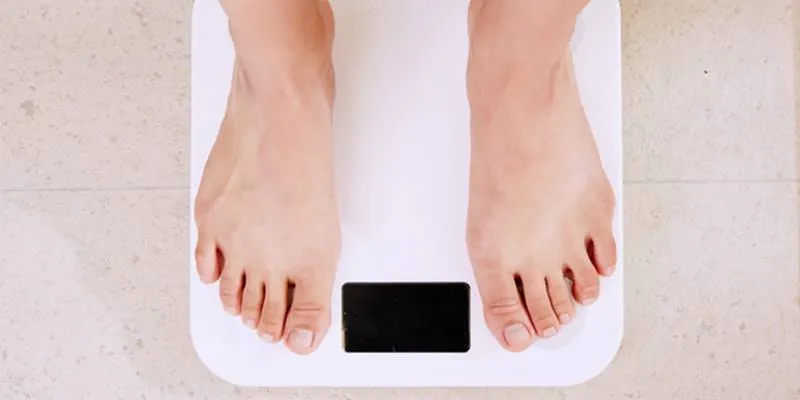
A Silent Crisis: The Alarming Toll of Cryptococcal Meningitis in Africa on World Meningitis Day
2024-10-07
Author: Wei Ling
On this World Meningitis Day, the world is reminded of a pressing health crisis that disproportionately affects the African continent. Despite being preventable and treatable, cryptococcal meningitis remains a leading cause of death among people living with HIV in sub-Saharan Africa, killing roughly 135,000 individuals each year. The case of Zikhona, a young woman from New Crossroads in Cape Town, captures the harsh reality facing many. After arriving at Khayelitsha Hospital in extreme pain, with a severe headache, stiff neck, and almost complete loss of vision, she learned of her diagnosis—cryptococcal meningitis—a disease she was previously unaware of. Thanks to timely intervention, she survived, but countless others aren’t as fortunate.
Cryptococcal meningitis is caused by the fungus Cryptococcus neoformans, commonly found in soil and bird droppings. While most healthy individuals can inhale this fungus without ill effects, those with compromised immune systems, particularly those with advanced HIV/AIDS, are at risk of developing life-threatening infections. This serious condition leads to symptoms such as debilitating headaches and mental confusion, caused by inflammation of the membranes surrounding the brain and spinal cord.
Beneath the surface of this medical crisis lies a shocking truth: despite medical advances, microbiologist and HIV clinician research has shown that cryptococcal meningitis remains drastically underdiagnosed and poorly treated in Africa. With mortality rates reaching as high as 70%, there is a desperate need for improved access to early diagnosis and effective treatment options.
The World Health Organization (WHO) recommends a treatment regimen that includes liposomal amphotericin B (LAmB) and other antifungal drugs. Unfortunately, availability problems plague these life-saving medicines. LAmB, known for its efficacy, is often priced beyond the reach of many low- and middle-income countries (LMICs). For instance, while countries like Brazil may pay $215 per vial, Japan and the UK pay considerably less, leaving LMICs trapped in a cycle of financial strain and constrained healthcare options.
Treatment access is further stymied by supply chain issues. Although Gilead, the main supplier, has offered a ‘no-profit’ price in some LMICs, this effort is undermined by delivery delays and complex administrative requirements. In a distressing turn, Gilead recently increased this price by 40%. Existing generic alternatives are limited due to their complex manufacturing processes, causing many countries to rely instead on more toxic treatments that can damage kidneys and lead to severe side effects.
Flucytosine, another recommended treatment, is not widely registered or available in many African nations. Even where it is accessible, administration presents its own challenges, particularly for unconscious patients who require tube feeding—often relying on improvised methods that compromise care standards.
Addressing this crisis calls for urgent and radical action. Initiatives aimed at lowering the cost of LAmB and developing user-friendly formulations of flucytosine are essential. Organizations like the Drugs for Neglected Diseases initiative (DNDi) are working to engage potential manufacturers to supply these critical drugs at fair prices but require strong regional coordination and support.
Additionally, a push toward developing simplified diagnostic tests for cryptococcal meningitis is vital for prevention and timely treatment. Investments into existing testing methods and novel diagnostic tools will help ensure that no patient faces the same uncertainty and fear that Zikhona experienced.
Cryptococcal meningitis can be treated effectively, and with collective advocacy, we can work towards global equity in healthcare access. As we observe World Meningitis Day, the call for action is clear: it’s time to prioritize the fight against cryptococcal meningitis and ensure that every individual has a fair chance at survival. No one affected by this devastating disease should be left behind. The people of Africa deserve better, and we must commit to making meaningful changes.




 Brasil (PT)
Brasil (PT)
 Canada (EN)
Canada (EN)
 Chile (ES)
Chile (ES)
 España (ES)
España (ES)
 France (FR)
France (FR)
 Hong Kong (EN)
Hong Kong (EN)
 Italia (IT)
Italia (IT)
 日本 (JA)
日本 (JA)
 Magyarország (HU)
Magyarország (HU)
 Norge (NO)
Norge (NO)
 Polska (PL)
Polska (PL)
 Schweiz (DE)
Schweiz (DE)
 Singapore (EN)
Singapore (EN)
 Sverige (SV)
Sverige (SV)
 Suomi (FI)
Suomi (FI)
 Türkiye (TR)
Türkiye (TR)